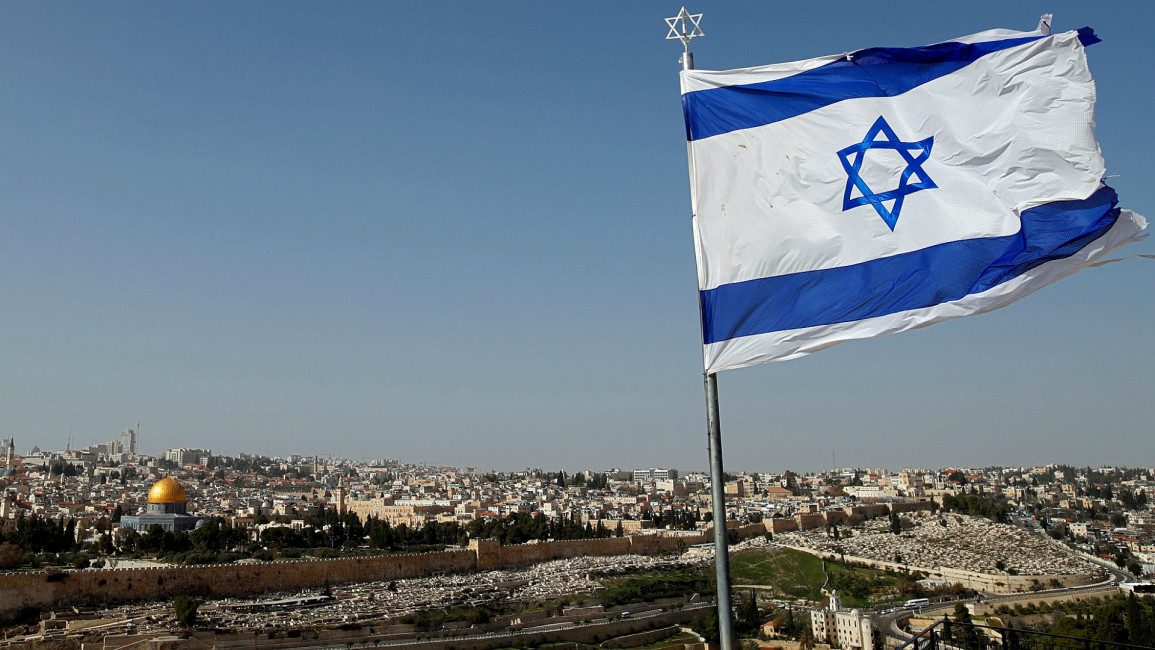Qatari, Saudi officials deny Israel normalisation plans, after Netanyahu Israel election boast
Qatari, Saudi officials deny Israel normalisation plans, after Netanyahu Israel election boast
Netanyahu fuelled speculation that more Gulf states were planning to normalise ties with Israel.
3 min read
Israel goes to the polls on Tuesday [Getty]
Current and former Qatar and Saudi officials have denied claims they are planning to normalise ties with Israel amid speculation fuelled by Israeli Prime Minister Benjamin Netanyahu ahead of Tuesday's election.
Netanyahu has stated four countries are close to establishing diplomatic relations with Israel. The country's intelligence minister later named Saudi Arabia and Qatar among the four.
Top officials from both Gulf states have denied they are considering normalisation.
Over the weekend, Saudi Arabia's Minister of State for Foreign Affairs Adel Al-Jubeir said that Riyadh would not establish formal ties with Israel until an agreement with Palestinians is found.
An op-ed written by a former Saudi government adviser for a Palestinian newspaper on Monday took a similar line, saying that Riyadh would not normalise relations with Israel until a Palestinian state is established.
Nawaf Obaid, who wrote the comment piece in the Al-Quds newspaper, claimed his views represented those of Saudi Crown Prince and de-facto ruler Mohammed bin Salman.
On Sunday, a Qatari foreign ministry official, speaking on condition of anonymity, said Doha would similarly require an Israeli-Palestinian peace agreement before forging ties with Israel.
Qatari Foreign Minister Sheikh Mohammed bin Abdulrahman Al-Thani last year described normalisation efforts as "undermining" Palestinian statehood.
"I think it's better to have a united (Arab) front to put the interests of the Palestinians (first) to end the (Israeli) occupation," he said.
Electioneering outrage
Israel's Prime Minister Netanyahu is widely seen as attempting to use his recent diplomatic victories to win over an electorate that has failed to give him a clear majority in three prior elections over the past two years.
The UAE and Bahrain - both allies of Saudi Arabia - agreed to normalise ties with Israel last year as part of a Trump administration-brokered agreement. Morocco and Sudan later joined the initiative.
Abu Dhabi has rejected attempts to involve the UAE in the Israeli electoral campaign, however.
A planned visit by Netanyahu to the Gulf nation was widely interpreted as part of the Likud leader's electoral campaign, although the trip was canceled due to a diplomatic spat with Jordan.
Anwar Gargash, the former Emirati foreign minister and a top presidential adviser, said his country would have no part in "internal electioneering in Israel, now or ever".
Netanyahu has stated four countries are close to establishing diplomatic relations with Israel. The country's intelligence minister later named Saudi Arabia and Qatar among the four.
Top officials from both Gulf states have denied they are considering normalisation.
Over the weekend, Saudi Arabia's Minister of State for Foreign Affairs Adel Al-Jubeir said that Riyadh would not establish formal ties with Israel until an agreement with Palestinians is found.
An op-ed written by a former Saudi government adviser for a Palestinian newspaper on Monday took a similar line, saying that Riyadh would not normalise relations with Israel until a Palestinian state is established.
Nawaf Obaid, who wrote the comment piece in the Al-Quds newspaper, claimed his views represented those of Saudi Crown Prince and de-facto ruler Mohammed bin Salman.
On Sunday, a Qatari foreign ministry official, speaking on condition of anonymity, said Doha would similarly require an Israeli-Palestinian peace agreement before forging ties with Israel.
 |
| Read more: A Saudi-Israeli rapprochement? |
Qatari Foreign Minister Sheikh Mohammed bin Abdulrahman Al-Thani last year described normalisation efforts as "undermining" Palestinian statehood.
"I think it's better to have a united (Arab) front to put the interests of the Palestinians (first) to end the (Israeli) occupation," he said.
Electioneering outrage
Israel's Prime Minister Netanyahu is widely seen as attempting to use his recent diplomatic victories to win over an electorate that has failed to give him a clear majority in three prior elections over the past two years.
The UAE and Bahrain - both allies of Saudi Arabia - agreed to normalise ties with Israel last year as part of a Trump administration-brokered agreement. Morocco and Sudan later joined the initiative.
Abu Dhabi has rejected attempts to involve the UAE in the Israeli electoral campaign, however.
A planned visit by Netanyahu to the Gulf nation was widely interpreted as part of the Likud leader's electoral campaign, although the trip was canceled due to a diplomatic spat with Jordan.
Anwar Gargash, the former Emirati foreign minister and a top presidential adviser, said his country would have no part in "internal electioneering in Israel, now or ever".
"The UAE signed the Accords for the hope and opportunities they provide our people, not individual leaders," an Emirati official told CNN last week.
"Personalising and politicising the Accords in this way demeans the historic achievement. The UAE will not go down that road," the anonymous official said.
Most Arab and Muslim-majority nations have historically refrained from establishing diplomatic and economic ties with Israel out of solidarity with the Palestinians.
The US-brokered accords between Israel and Arab nations have been met with protests across the world.
Follow us on Facebook, Twitter and Instagram to stay connected



